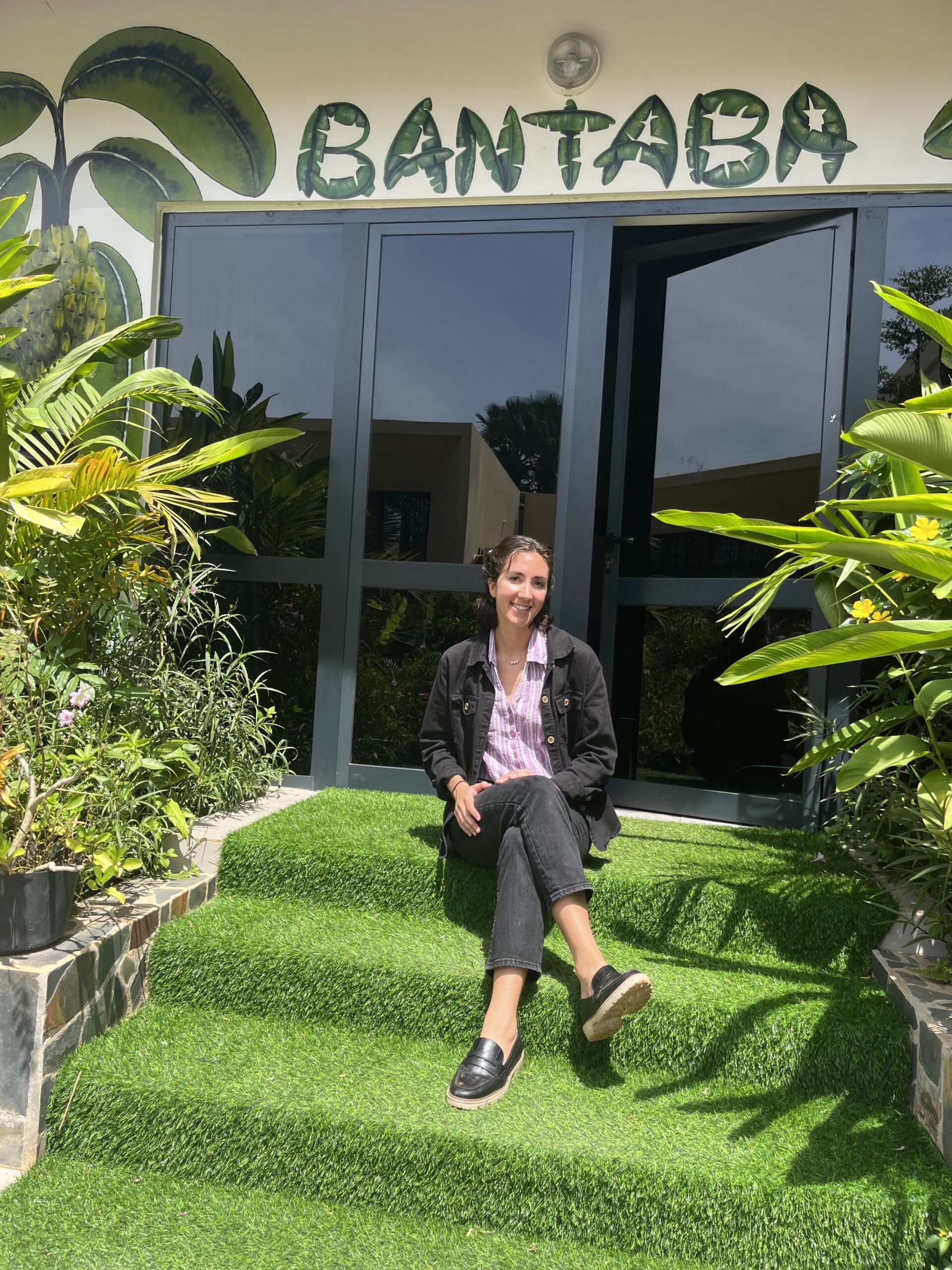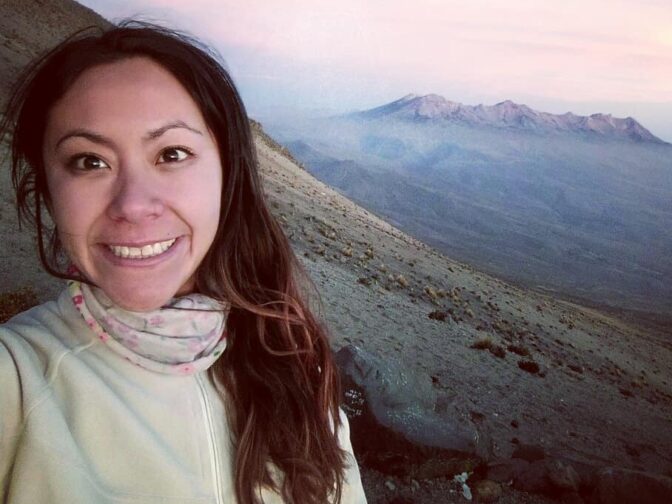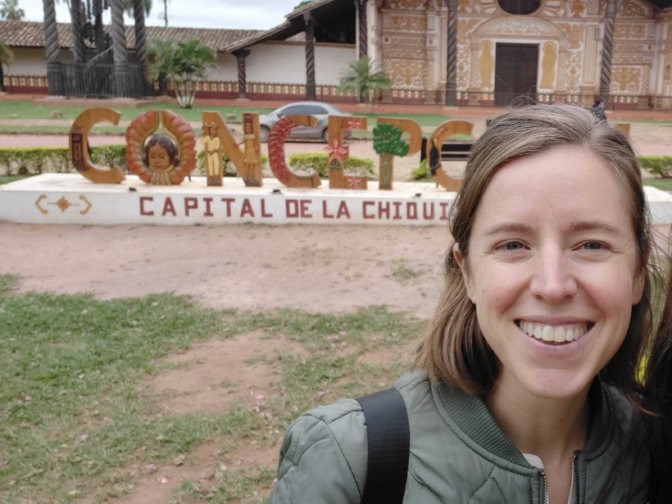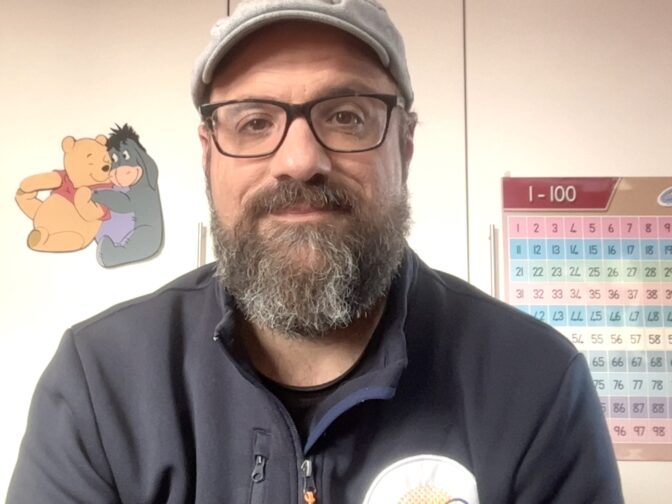Tell us a bit about yourself.
My name is Rachel Katz, and I’m a program associate at Equimundo. I’m a middle child. I’m very close with my parents, brother, and sister. I live in DC, and my immediate family isn’t here, but my grandparents live nearby, and over the past four years I’ve gotten to form one-on-one adult relationships with them, which has been wonderful. They are divorced, so I visit them separately (and often have to fact-check stories between them). I ask so many questions about their past, and my dad’s upbringing. It fills me with awe to imagine their lives 50, 60, 70 years ago. They often divulge stories that have not come up in decades, and I feel lucky to develop a deeper understanding and connection to my family history.
What inspired your passion for health equity and positive behavior change, and how has this shaped your work at Equimundo?
Studying psychology and global health, I was most drawn toward social determinants of health. There are so many wide-reaching health challenges that can’t be resolved solely with medicine, as they are rooted in systemic inequities. Maternal mortality, for example, on a global level is largely connected to early marriage, which is rooted deeply in gender inequality. In the US, maternal mortality is starkly different based on race, resulting from many layers of racial discrimination and inequities. Beyond improving access to healthcare or resources, sustained change requires transforming underlying social norms, behaviors, and systemic structures that perpetuate those inequities. So it is the work we do that can truly affect change and create health equity.
You’ve worked on programs at Equimundo that span boys’ and men’s life cycles, doing programs for boys as part of the Global Boyhood Initiative and for adult men at their workplaces. What have those experiences taught you, and what are the biggest lessons you’ve learnt working across those wide age ranges?
We are always compelled to start change with children, before they’ve become set in their ways. I am often most inspired by the way children can emanate kindness and silliness and love. But children are constantly mimicking the adults in their lives. And adults have internalized and perpetuated unequal and unjust dynamics. So, we need to reach all generations to create change. I’ve seen from working with men in their 40s, 50s, 60s (and from debating with older men in my family) that they are very capable of letting in new ideas and taking steps toward change.
In addition to covering a wide age range, these programs also cover a wide geographical spread, including the US. What do you find most rewarding about your work in local programming in Washington, DC?
I love going to in-person programs in DC. I get to lead trainings for our sex-ed facilitators of Many Ways of Being, and then I sit in on some of their classes and time travel back to high school… except instead of the sex-ed I experienced (where they scared us with photos of STIs and a video of a birth), I get to witness youth engage in such thoughtful, nuanced discussions of healthy relationships and access to sexual and reproductive healthcare. The teenagers teach me new things every time I go, and they help ground me in how to improve our lessons for their demographic.
Also, in DC I get to present to international groups through the State Department or the Foreign Service Institute about Equimundo, basics of gender, and gender-transformative approaches. I love sharing about our work, leading them through the Man/WomanBox activity, hearing new perspectives from the participants, and getting energy from their excitement to bring back their learnings to their respective countries.
What helps you to keep showing up in this work?
So much! The ongoing inequalities that I hope to chip away at, “poco a poco.” My colleagues and their passion to do the same. My gratitude that I get to be a tiny drop in a sea of people working toward these same goals. My personal relationships that are proud of the work I do. My wish that I could have grown up in a world that we envision as possible through the work we do.



